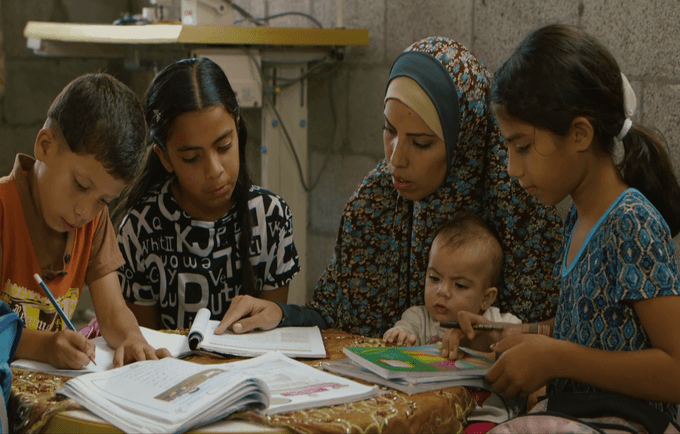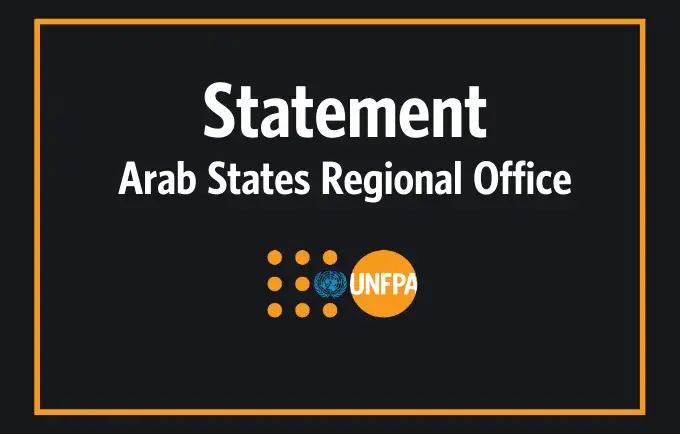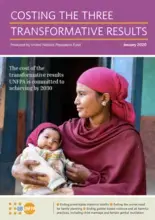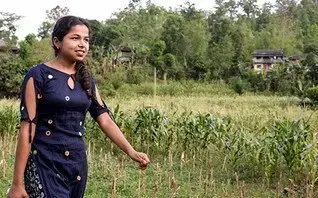Sahar El Nabaheen was born into a humanitarian crisis that has only gotten worse over the years. In addition to the violence, the fear and the uncertainty that are part and parcel of what it is to live in Gaza, a decade-old blockade caused a raging economic crisis and a youth unemployment rate as high as 60%. In the midst of the unfolding disaster, family planning might be dismissed as secondary.
But for Sahar, the lack of access to regular, high-quality family planning information and services has all but defined her life. At 31, she lives with her husband and their six children. With her husband unable to find work, her family of eight are living on no income.
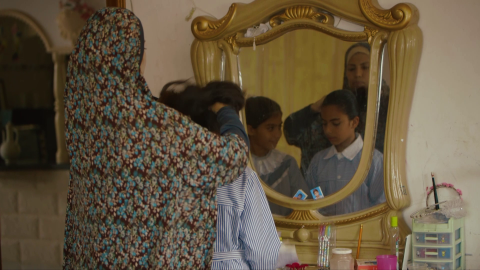
“The siege had a negative impact on Gaza and caused poverty and unemployment,” Sahar said, “Jobs have become rare in Gaza.”
The blockade, along with political developments which restricted the funding of international aid organizations in Palestine, also made it difficult to make essential medical supplies available. Sahar has a chronic blood disorder called thalassemia which, in Sahar’s case, requires life-long treatment including occasional blood transfusions. In pregnancy, thalassemia can lead to anemia and may cause pregnancy and childbirth complications if women don’t receive adequate medical support.
“The siege affected my condition as a thalassemia patient because, sometimes, I go to the hospital and I can’t find my medicines,” Sahar said, “But I can tolerate the wait. There are others who can’t afford to wait, like cancer patients, or asthma patients like my mother who also struggles to find her medication sometimes.”
Conscious of the restrictions around her and because of her condition, Sahar decided to wait after her first daughter. An older woman in the family told her she might not need contraceptives because some women don’t conceive while breast-feeding. So, Sahar waited and didn’t seek a medical consultation. She ended up delivering her second daughter a year later.
This time, she decided not to leave it to chance. She went to a clinic and asked about the available contraception methods. Because of the thalassemia, she was told bills or condoms are her best options. She used the condoms and soon fell pregnant for the third time. Problems with the availability of reliable contraceptives and with her ability to access them regularly led to three more unplanned pregnancies after that.
In her last pregnancy, she could no longer afford regular doctor visits or the necessary vitamins and supplements that are essential in her condition. Currently, she visits a UNFPA-supported safe space for women and girls where she regularly receives a more reliable contraceptive for free. She is also part of a vocational training program which, Sahar hopes, would one day enable her to contribute to generating income for her large family.
She hopes that, by the time her children grow older, they will live in a different reality and will get the chance to finish their education and find employment.
With a smile, Sahar said future planning is a luxury she can’t afford:
“It is quite enough to worry about getting through the day,” Sahar said, “My worst fear is that our children will have the same life we had.”
UNFPA in Palestine:
In 2018, UNFPA provided services and support to over 230,000 women and girls of reproductive age, and 10,000 youth and adolescent girls. UNFPA’s interventions in Palestine focus on ensuring universal access to reproductive health services and information, providing protection and support services to survivors of gender-based violence, and youth empowerment programming.

